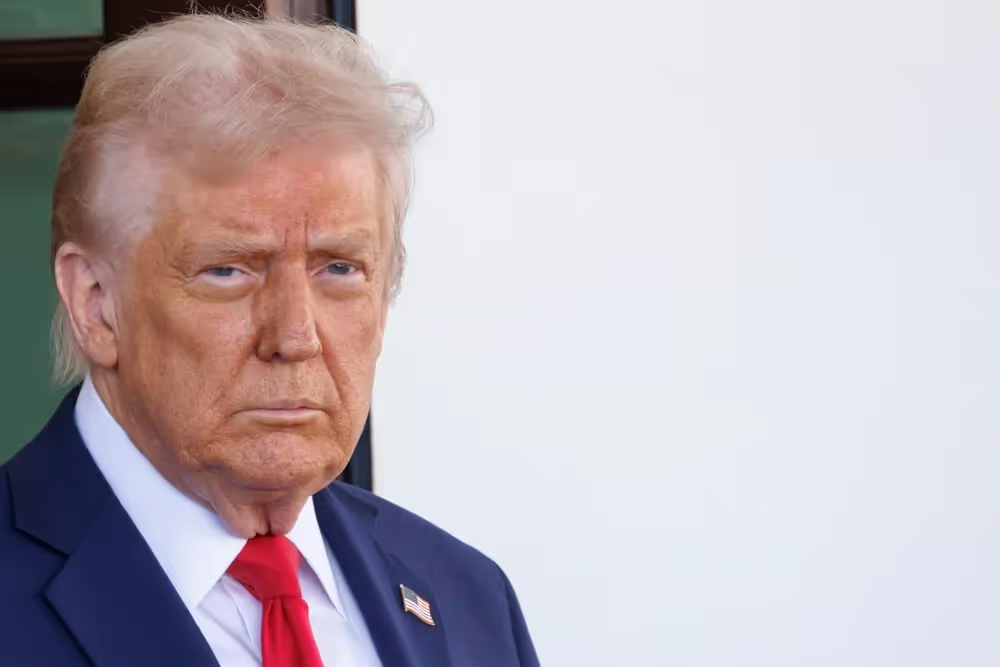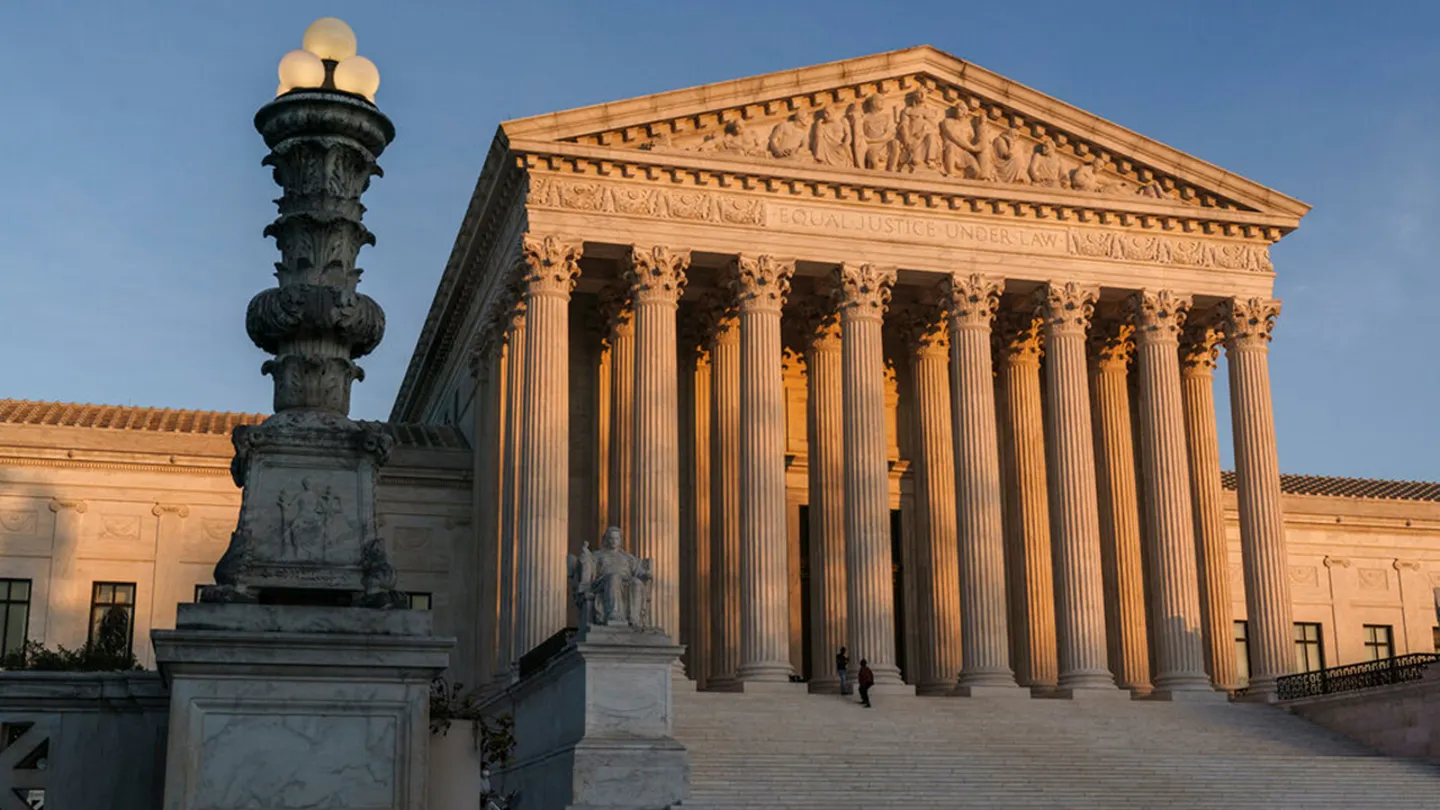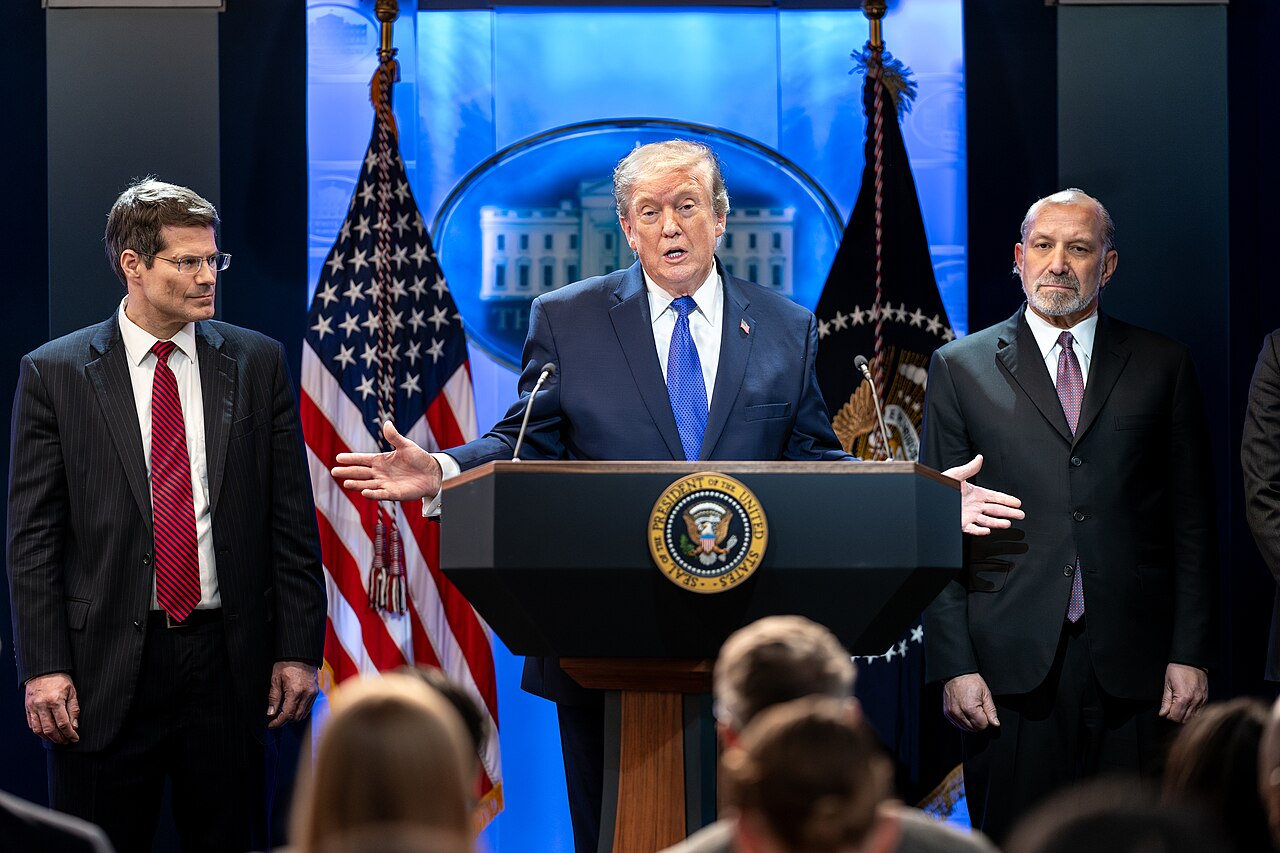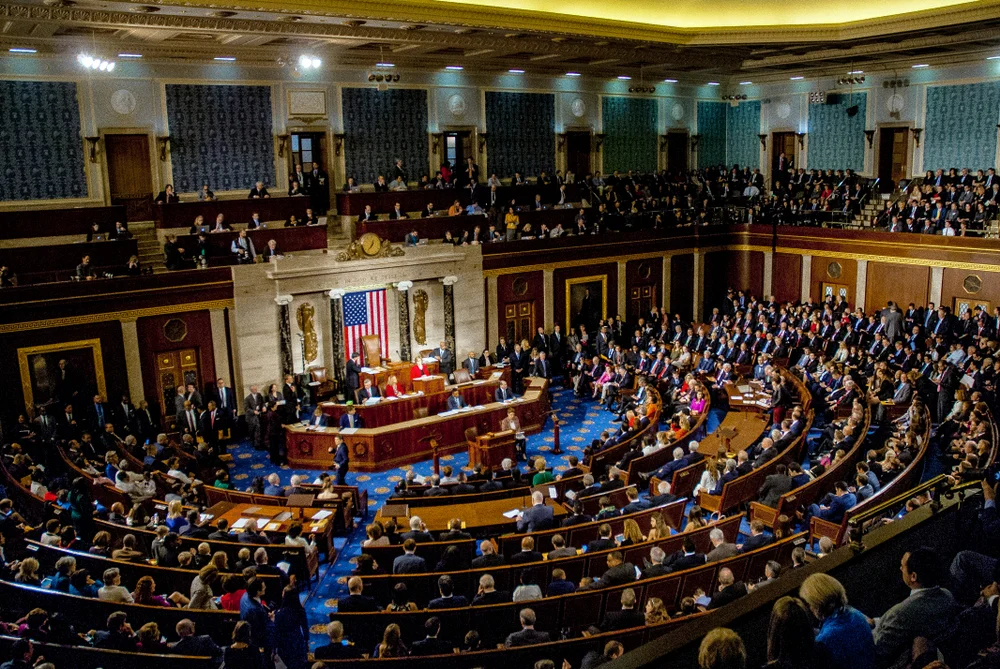
Executive Power in the Age of Trump
Neutral principles are available to determine when executive power is within or exceeds constitutional limits.
The question of the proper range and scope of executive power is as old as the Constitution itself, which in Article II announced a radical departure from the English system of Parliamentary rule in this one sentence: “The executive Power shall be vested in a President of the United States of America.” There then follows a list of specific tasks that fall to the President, including his service as Commander in Chief of the Army and Navy, and the Militia when called into the active service of the United States. This call to service, given the dominant theory of separation of powers, must satisfy congressional standards. There is thus a built-in tension across two branches of government that cannot arise in a Parliamentary system, a tension that requires a constitutional resolution. Matters become still more vexed with this key residual source of presidential authority: “he [the President] shall take Care that the Laws be faithfully executed,” which is tucked in between his power to receive ambassadors and commission the officers of the United States.
From the earliest time, everyone applied a theory of the Unitary executive to distance presidential power from unrestricted royal power, while ensuring that with respect to the key tasks of his administration, the President did not have to confront key cabinet officials with independent power bases, like issuing independent commands to the military or suing the President for breach of his constitutional or statutory authority. Nonetheless, the Constitution well understands that there are independent departments that must report to him, and thus the word “be” does not necessarily commit the nation to a regime in which the President can fire all officials at will. Nor does it commit to a regime in which Congress may not insulate any member of the executive branch from the President’s removal power or direct command to that officer on the threat of his removal. Indeed, now that independent agencies are in trouble before the Supreme Court in Trump v. Wilcox, it also hints that the Federal Reserve may be beyond the presidential removal power. But why? There must be limits on any such principle, for cabinet level officials who discharge discretionary duties must accept the institutional need for a unitary public response. However, the powers of the executive branch have also been directed forcefully toward the interests of private individuals and institutions, targeted by the President either directly or through his subordinates, using either criminal or civil sanctions. As of 1789, there were no Bill of Rights protections against the government. But in 1791, the Due Process Clause of the Fifth Amendment provided that no person should “be deprived of life, liberty, or property, without due process of law.” That provision applies to both Congress and the President so that the former cannot enact rules that command public officers’ violation of those rights. Nor can the President or his delegates, on a one-off basis, do the same thing to members of the public.
Given that basic system, it surely must be within the power of the Congress to pass prophylactic rules that impose on the President and his agents duties to make sure that these guarantees are respected, so long as they do not unduly burden the legitimate operations of his office, which is the major reason the Supreme Court gave a broad reading of presidential immunity in Trump v. United States (2024). These conditions have unfortunately not been followed by the Trump administration in its pursuit of those parties whom he and his agents think engage in woke or antisemitic acts, like Harvard and Columbia. Thus, it has been commonplace for Congress to set explicit conditions, for example, to deal with the revocation of grants that were made through the National Science Foundation or the National Institutes of Health, to make sure that deviance from the grant provisions were the sole grounds for cancelling or cutting the grant. This is also true regarding the elaborate procedures that must be followed to revoke an organization's tax-exempt status. There is no credible argument denying that these actions both serve a legitimate end and do so by invoking narrowly tailored procedures to execute those rules.
At this point, there are two decisive responses to this tension. First, the use of the phrase “be faithfully executed” really binds. The “be” now means that the President is duty-bound to check the procedural lapses and shortcomings of subordinate officials. The words “faithfully executed” mean that all of these subordinate officials have fiduciary duties to the public to act in line with the stated terms of the Congressional scheme as expressed in those general rules. Second, it is no answer to argue that taxpayers and grant recipients do not have “property” interests that trigger due process claims. Taxpayers may have no right to specific exemptions that Congress has not created, but they do get the right to protect exemptions that were conferred upon them by Congress, just as they have the right to challenge government officials who illegally levy liens on their property. Similarly, grant recipients have a property interest created and defended by Congressional ruling that cannot be ignored by executive fiat. The presidential powers in these cases are properly constrained.
There are similar constraints on executive power even in, or perhaps especially, on matters of foreign affairs. For example, Youngstown Sheet and Tube Co. v. Sawyer (1952) held that the President had no power to seize and operate steel mills to prevent a strike that would hinder the Korean War effort, as Congress had not granted him the authority to do so. His Constitutional endowment could not fill that gap. However, in Zivotofksy v Kerry (2015), the Supreme Court held that the Reception Clause grants the President the exclusive right to formally recognize a foreign sovereign, even when Congress legislates the opposite. Thus, the scope of this deference in foreign affairs raises obvious concerns. One of the most dangerous exercises of this power comes in connection with the Alien Enemies Act of 1798 (“AEA”) which provides that the government may “apprehend[], restrain[], secure[] and remove[], as alien enemies” aliens from any country that has declared war against the United States or whose citizens have invaded the United States. At this point the jurisdictional battle is over who gets to decide whether an invasion has taken place, or more importantly, is taking place. Clearly, in the first instance, it is the President who makes that determination, especially in an emergency. But in any case where the question is whether that emergency exists, the President cannot have absolute power to decide these questions against all the evidence. Such is the case here, especially since Trump has compromised his standing by overreaching on too many occasions. However much President Joseph Biden mismanaged the situation at the border, the situation on the ground today is dramatically different, for Trump’s successful efforts to shut down the border to illegal immigration have brought an end to that threat, which both the courts and Congress should declare. So, the collection and deportation cannot be done under the AEA, as it could be done in wartime conditions, to every non-citizen immigrant in this country, whether legal or illegal.
The precise contours of a Due Process hearing may be difficult to determine, but a handy and sensible place to start is with the procedures used by prior administrations to address this question. The danger of political aggrandizement by any administration means that just as the President cannot thumb his nose at Congress, so too he cannot ignore judicial determinations that limit the scope of his authority.
Yet other cases point in the opposite direction. Thus the Supreme Court in Trump v. CASA, Inc., one of the many cases dealing with Birthright Citizenship, made the right call when it held that a single federal district court judge could not issue a nationwide injunction against the President for this simple reason: one federal judge in one district picked by the plaintiff (who may take more than one shot before getting lucky) should not be allowed to bind the nation given the obvious selection bias wrought by his forum shopping. Only the Supreme Court should have that authority, and then only in rare cases. However, the Court then allowed that a nationwide injunction could be permitted in cases involving nationwide class actions. This is an unwise concession, given that class actions could be instantly conjured up, as in Barbara v. Trump, where the same risk remains: one specially chosen judge dictates the course of national action, with only class certification interposed. So the sensible approach is to tailor that injunctive relief in class actions solely to the single district, for otherwise the exception will swallow the rule. And then, when Districts and Circuits split, the Supreme Court can resolve the conflict.
Trump was also on firm ground in resisting any effort to limit the power he has to fire federal employees, even en masse, with the claim that an executive order of this sort requires congressional participation. The first sentence of the Executive Order—“By the authority vested in me as President by the Constitution and the laws of the United States”—should have been enough to solve the issue. The dismissal, under that order, had to be made within the law, so the Order could not be enjoined as if it said, “Fire whom you want, the law be damned,” at which point the correct response is to issue that injunction given the open declaration to defy the law, and then to announce that the statement of an illegal intention means that going forward, the presumption will no longer be with the President in close cases. But here, the opposite dynamic is in play. The individual plaintiff must establish the case, which may well be true if the dismissal is illegal. Yet even here, the dominant norm favors the President when it holds uniformly, dating back at least to Parsons v. United States (1897), that the President is within his rights to fire persons whose contract may be for a term of years, which is common to federal prosecutors who resign routinely with a change in administrations. None of this is meant to indicate substantive agreement with the President, but it does mean that the fight against the President has to be fought in various political arenas. However, that is how it should be, for it is essential to emphasize the key theoretical point: it is possible to develop a single theory that strikes the right balance among the three branches, not just for the Trump era, but also before and after.
Richard A. Epstein is a senior research fellow at the Civitas Institute. He is also the inaugural Laurence A. Tisch Professor of Law at NYU School of Law, where he serves as a Director of the Classical Liberal Institute, which he helped found in 2013. Epstein is also the James Parker Hall Distinguished Service Professor of Law Emeritus and a senior lecturer at the University of Chicago.
Constitutionalism

Amicus Brief: Hon. William P. Barr and Hon. Michael B. Mukasey in Support of Petitioners
Former AGs Barr and Mukasey Cite Civitas in a SCOTUS Brief

Rational Judicial Review: Constitutions as Power-sharing Agreements, Secession, and the Problem of Dred Scott
Judicial review and originalism serve as valuable commitment mechanisms to enforce future compliance with a political bargain.

State Courts Can’t Run Foreign Policy
Suncor is also a golden opportunity for the justices to stop local officials from interfering with an industry critical to foreign and national-security policy.

Supreme Court tariff ruling should end complaints that justices favor Trump
John Yoo writes on the Supreme Court’s decision on President Trump’s tariff case.

Trump’s Tariff Tantrum
Trump leaps from the frying pan into the fire in the aftermath of Learning Resources v. Trump.

The Administrative State’s Sludge
Congress has delegated so much power across so many statutes that it’s hard to find a question of any public importance to which some agency cannot point to policymaking authority.
.avif)

.avif)










.webp)


